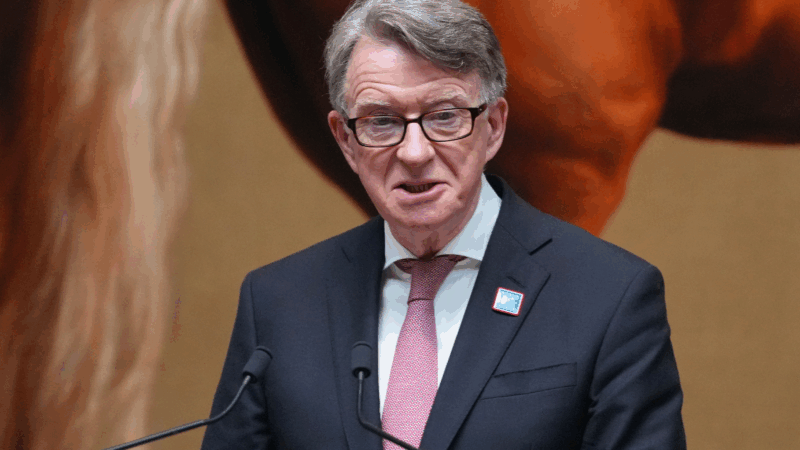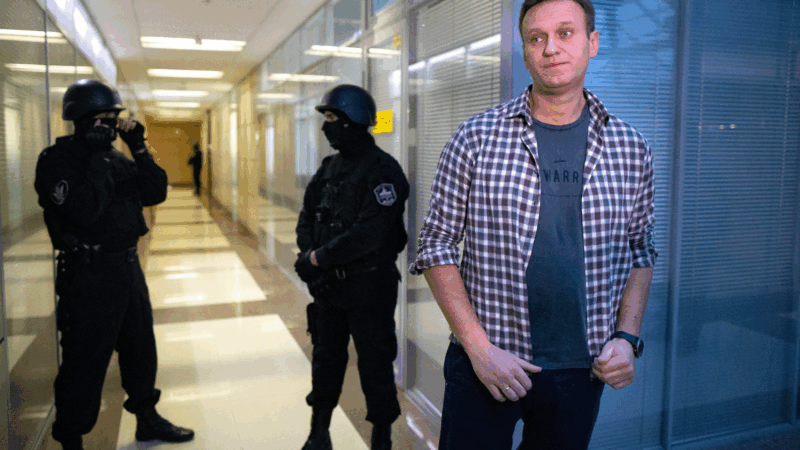On the Line — The Trial of Larry Langford
Birmingham Mayor Larry Langford has been convicted of all 60 counts in his federal corruption trail. The jury found him guilty Wednesday of accepting about $235,000 in cash and other items while president of the Jefferson County Commission. In exchange, he steered bond business to a Montgomery investment banker. The conviction ends Langford’s term as Birmingham mayor. He says he will appeal the verdict.
What’s next for Langford? What’s next for the city of Birmingham? What do you think about the trial? WBHM’s Tanya Ott hosts, On the Line – The Trial of Larry Langford.

Natalie Davis is a professor of political science at Birmingham Southern College. She has been on faculty since 1972. Her fields of interest include comparative politics, specializing in Europe, Southern politics, and research methodology. Davis is a public opinion expert, who conducts political polls in Alabama and throughout the South. She is quoted regularly in publications such as the New York Times and Washington Post and, over the years, has appeared on all of the national networks. Dr. Davis was a candidate for the U.S. Senate in 1996.

Patricia Todd was elected to the Alabama State Legislature as Representative for House District 54 in 2006. Todd has socially and professionally advocated for public policies relevant to HIV/AIDS, healthcare and a wide range of issues affecting the Birmingham community for over 20 years. Her work has included service as secretary of the Crestwood Neighborhood Association, board member of Equality Alabama, member of the NAACP and the League of Women Voters and service as the former secretary of Episcopal Church Women at Grace Episcopal Woodlawn. Todd was selected as one of the “Top 40 Under 40” in 1992 by the Birmingham Business Journal. and was elected in 2004 as a delegate to the National Democratic Convention. She holds a Master’s Degree in Public Administration from the University of Alabama at Birmingham.

Kyle Whitmire is a staff writer and columnist for Birmingham Weekly. His column “War on Dumb” has been recognized by the Association of Alternative Newsweeklies and Northwestern University’s Medill School of Journalism. Whitmire is a graduate of Birmingham Southern College and is a regular political analyst on WBHM.

John Carroll is Dean of the Cumberland School of Law at Samford University. He received his undergraduate degree from Tufts University and holds law degrees from the Cumberland School of Law at Samford University and Harvard University. Carroll served as a United States Magistrate Judge in the Middle District of Alabama for over 14 years. Prior to entering academia, he was the Legal Director of the Southern Poverty Law Center in Montgomery, Alabama. His trial experience includes major civil rights class action litigation and complex criminal defense including a substantial number of death penalty cases. He has twice argued before the United States Supreme Court.
~ October 29, 2009
Epstein files fallout takes down elite figures in Europe, while U.S. reckoning is muted
Unlike in Europe, officials in the U.S. with ties to Epstein have largely held their positions of power.
Four people on NASA’S Crew-12 arrive at the International Space Station
The crew will spend the next eight months conducting experiments to prepare for human exploration beyond Earth's orbit.
American speedskater Jordan Stolz wins second Olympic gold with 500-meter race victory
With the win, Stolz joins Eric Heiden as the only skaters to take gold in both the 500 and 1,000 at the same Olympics.
US military reports a series of airstrikes against Islamic State targets in Syria
The U.S. military says the strikes were carried out in retaliation of the December ambush that killed two U.S. soldiers and one American civilian interpreter.
5 European nations say Alexei Navalny was poisoned and blame the Kremlin
In a joint statement, the foreign ministries of the U.K., France, Germany, Sweden and the Netherlands say Navalny was poisoned by Russia with a lethal toxin derived from the skin of poison dart frogs.
It’s a dangerous complication of pregnancy — but a new drug holds promise
Researchers celebrate early results of a drug that may become the first treatment for a serious complication of pregnancy called preeclampsia. It's got the potential to save many lives.






